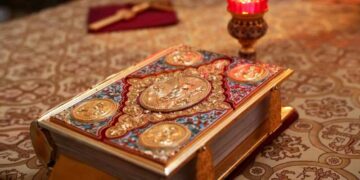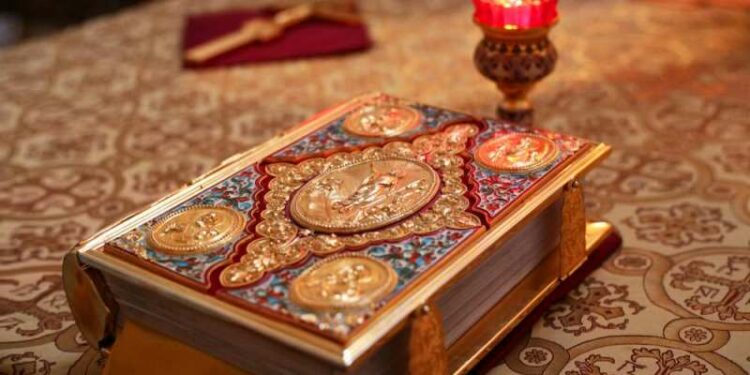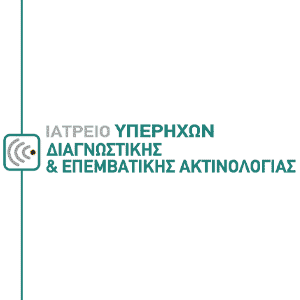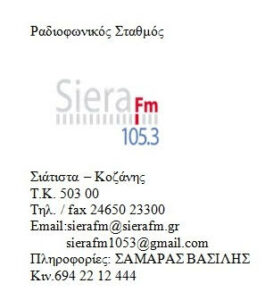Του Αγίου Πνεύματος σήμερα ημέρα παραδοσιακά αφιερωμένη στις πνευματικές εργασίες, τα σχολεία και τους μαθητές.
Η εορτή του Αγίου Πνεύματος είναι κινητή. Εορτάζεται πάντοτε ημέρα Δευτέρα, 7 εβδομάδες μετά το Πάσχα και είναι η επόμενη ημέρα από την Κυριακή της Πεντηκοστής. Η ημέρα αυτή είναι αργία για τις δημόσιες υπηρεσίες και πολλούς εργαζόμενους γραφείου, ενω τα σχολεία σήμερα παραμένουν κλειστά.
Ο όρος Άγιο Πνεύμα, χρησιμοποιείται από τις θρησκείες που βασίζονται στην Αγία Γραφή για να περιγράψει είτε τη θεία δύναμη που βρίσκεται σε ενέργεια, είτε το τρίτο πρόσωπο της Αγίας Τριάδος.
αγιο πνευμα
Το Άγιο Πνεύμα ως περιστέρι σε βιτρώ στη Βασιλική του Αγίου Πέτρου στη Ρώμη
Το Αγιο Πνεύμα με τη μορφή της φωτιάς
Σύμφωνα με την Καινή Διαθήκη, 10 μέρες μετά την Ανάληψη και 50 μέρες μετά το Πάσχα, οι 12 Απόστολοι είχαν συγκεντρωθεί σε ένα σπίτι που βρισκόταν στα Ιεροσόλυμα. Μια δυνατή βροντή ακούστηκε ξαφνικά στον ουρανό. 12 γλώσσες που έμοιαζαν με φωτιά κατέβηκαν στο σπίτι και στάθηκαν πάνω από τα κεφάλια των Αποστόλων.
Ο λόγος που το Άγιο Πνεύμα εμφανίστηκε με την μορφή φωτιάς ήθελε να δείξει πως η Αγία Τριάδα είναι ένα και ομοούσια και επίσης πως το κήρυγμα των Αποστόλων από εκείνη την στιγμή θα είχε διπλή ενέργεια. Όπως ακριβώς και η φωτιά. Να φωτίσει τους πιστούς και να παραδίδει τους άπιστους στο πυρ.
Εκείνη την ημέρα είναι η εβραϊκή γιορτή της Πεντηκοστής. Ημέρα που εορτάζεται η παράδοση των Δέκα Εντολών στον Μωυσή στο Όρος Σινά. Η επιφοίτηση του Αγίου Πνεύματος εκπλήρωσε την υπόσχεση που είχε δώσει ο Χριστός στους μαθητές του πριν την Ανάληψη.
Μετά την επιφοίτηση βγήκαν από το σπίτι και άρχισαν να κηρύττουν στους Ιουδαίους, μιλώντας στον καθένα στην γλώσσα του «για τα θαυμαστά έργα του Θεού».
Οπως αναφέρει το wikipedia σύμφωνα πάντα με τη χριστιανική διδασκαλία, το Άγιο Πνεύμα είναι μία από τις τρεις υποστάσεις ή πρόσωπα της Αγίας Τριάδας, δηλαδή του ενός και μοναδικού Θεού, ομοούσιο (δηλαδή μοιράζεται την ίδια ουσία-ύπαρξη) με τον Πατέρα και τον Υιό. Επομένως το Άγιο Πνεύμα είναι Θεός, που «συμπροσκυνείται και συνδοξάζεται» με τον Πατέρα και τον Υιό.
Αγιο Πνεύμα, η Θεία δύναμη που ενέπνευσε τους Προφήτες
Με αυτή τη βάση, μία ιδιότητα του Αγίου Πνεύματος που αναφέρεται συχνά στην Αγία Γραφή, είναι ότι αποτελεί τη θεία δύναμη που ενέπνευσε τους προφήτες να προφητεύσουν τη γέννηση του Ιησού Χριστού και τα Πάθη του.
Εντονότερα ωστόσο παρουσιάζεται το Πνεύμα του Θεού στην Καινή Διαθήκη: Κατά τη Βάπτιση του Χριστού, όπου εμφανίζεται με τη μορφή περιστεριού, ενώ συγχρόνως ακούγεται η φωνή του Θεού-Πατέρα (Θεοφάνια), αλλά και στην Πεντηκοστή ως μία «Θεία Ενέργεια» που εμπνέει τους μαθητές του Χριστού να μιλούν διάφορες γλώσσες. Από τον Ιησού Χριστό το Άγιον Πνεύμα αποκαλείται και Παράκλητος.
Παρόλα αυτά, κάποιοι αρχιερείς, όπως ο Μακεδόνιος, υποστήριξαν από τα πρωτοχριστιανικά ήδη χρόνια ότι το Άγιο Πνεύμα είναι κτίσμα-δημιούργημα του Θεού. Για να τους αντικρούσουν, οι Πατέρες της Εκκλησίας συνεκάλεσαν τη Δεύτερη Οικουμενική Σύνοδο το έτος 381, στην οποία δογμάτισαν το όγδοο άρθρο του «Συμβόλου της Πίστεως», που αποτελεί την ολοκλήρωση του Τριαδικού Δόγματος: ότι δηλαδή το Πνεύμα είναι «ομοούσιον τω Πατρί και τω Υιώ» και εκπορεύεται μόνο από τον Πατέρα: Μέχρι σήμερα, η Ορθόδοξη εκκλησία δέχεται την εκπόρευση μόνο από τον Πατέρα, ενώ κατά την Καθολική εκκλησία το Άγιο Πνεύμα εκπορεύεται και από τον Υιό.
Η διαφορά αυτή είναι γνωστή ως filioque (λατ. «και εκ του Υιού»), και κατά την ορθόδοξη άποψη οι Ρωμαιοκαθολικοί υποβιβάζουν με τον τρόπο αυτό το Άγιον Πνεύμα. Η βιβλική βάση για το θέμα βρίσκεται στο Κατά Ιωάννην Ευαγγέλιον, όπου ο Ιησούς λέγει στους μαθητές λίγο πριν από τη σύλληψή Του: «όταν δε έλθη ο Παράκλητος, ον εγώ πέμψω υμίν παρά του Πατρός, το Πνεύμα της Αληθείας, ό παρά του Πατρός εκπορεύεται, εκείνος μαρτυρήσει περί εμού» (Ιωάν. ιε΄ 26).
Από τη διδασκαλία του Χριστού προέρχεται και το δόγμα ότι το Άγιον Πνεύμα είναι η τρίτη υπόσταση της Αγίας Τριάδας, η οποία συμπληρώνει την έννοια του ενός Θεού. Ο Χριστός είπε: «μαθητεύσατε πάντα τα έθνη, βαπτίζοντες αυτά εις το όνομα του Πατρός και του Υιού και του Αγίου Πνεύματος», παρουσιάζοντας τα τρία πρόσωπα όμοια και αδιαίρετα ως προς το έργο της σωτηρίας του ανθρώπου.
Πηγή: iefimerida.gr































